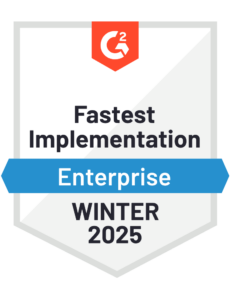What’s On The Horizon For CFOs In 2024
Blog post
Share
Omar Choucair, CFO, Trintech, has spent 20+ years leading financial and administrative organizations for public and private companies.
2024 is in full swing, and while the International Monetary Fund expects a “soft landing” in 2024 for the global economy, many CFOs are still preparing for risk and volatility in the coming months.
With a major U.S. election with global implications on the horizon, uncertainty and unease are still prevailing themes for many executives working in the Office of Finance. This can make it difficult to set long-term agendas or outline strategies for the next several months, but it remains clear that CFOs can continue to drive a “growth” agenda throughout their organizations.
While it may be impossible to develop a fully proactive 2024 plan, below are some of the key areas I think CFOs can execute on to ensure their business models are resilient as the full economic picture starts to come into focus.
Enhanced Automation And Streamlined Workflows
Finding value in the margins is critical during times of economic uncertainty, where every single dollar counts. Because we all know that time is money, finding value often comes in the form of finding ways to eliminate timely and redundant tasks.
Bridgepoint Consulting’s recent poll of CFOs found that 60% of CFOs leverage cloud-based technology to streamline their financial planning and reporting. We’ll likely see more organizations employ more proactive artificial intelligence strategies to automate time-consuming tasks.
Still, the amount of AI applications and vendors to pick from can be overwhelming for organizations looking to enter the space and decide where and how much to invest in AI to leverage these software solutions. While many CFOs will start small and work to identify low-hanging fruit to get “early wins” in their organizations, I expect to see more comprehensive automation efforts as finance leaders prioritize software solutions that not just save time but also create more cross-function collaboration and drive productivity gains across the entire organization.
The Path To Increasing Profitability
Profitability will always be one of the primary focuses for CFOs, but as we look at the changing economic landscape, it becomes just as important to understand the “why” behind profitability. Companies operating in all verticals, both large and medium-sized organizations, are aggressively trimming costs and searching for more efficient processes.
For example, in a recent report, ICONIQ Growth predicted that best-in-class SaaS companies will hit profitability sooner in 2024: within six to seven years after hitting $10 million annual recurring revenue or three to four after reaching $100 million ARR. In many cases, this means reaching profitability before going public, rather than “the historical precedent of most SaaS companies being un-profitable at IPO.” CFOs will need to increasingly emphasize identifying inefficiencies and where they can automate to drive tangible ROI.
Navigating Volatility
As stewards of a company’s financial resources, CFOs are responsible for proactively establishing a robust strategy to not just navigate volatility but also uncover opportunities for continued growth. The fact is that no one really knows what lies ahead for the global economy. While this can be a daunting prospect, it also means that there will be opportunities for the taking.
A well-crafted plan enables CFOs to anticipate potential risks, optimize resource allocation and capitalize on emerging trends. By integrating scenario planning, data analytics and a forward-looking financial approach, CFOs can minimize risk but also position their business models to thrive amid uncertainty, ensuring resilience and agility in the face of an evolving business landscape.
Talent Retention And Acquisition
Bridgepoint Consulting’s recent survey also found that CFOs expected labor to be the biggest risk heading into 2024. Whether it’s finding top talent or keeping high-quality employees, CFOs face major hurdles in retaining the best personnel in their organization. As companies face stiff competition to attract talent, the same Bridgepoint poll found that 98% of CFOs plan to increase wages in 2024 to remain competitive.
As executive teams allocate resources to address labor concerns, every decision made by the Office of Finance faces a heightened level of scrutiny. CFOs will likely need to be creative when finding ways to mitigate both the costs and risks associated with keeping their key employees motivated and engaged.
Over the past several years, CFOs have been elevated beyond just maintaining the financial health of the organization and into strategic roles that are deeply connected to overall business strategy and charting the future of the business. This elevates the importance of the critical decisions they make.
While CFOs cannot predict the future, extreme focus and strategic technology adoption can help them avoid surprises and prepare their companies for growth. Organizations have their own unique pain points to solve over the next several months, but CFOs can craft strategies to minimize volatility and ensure they have the strategy, technology and people in place to make 2024 a success.






